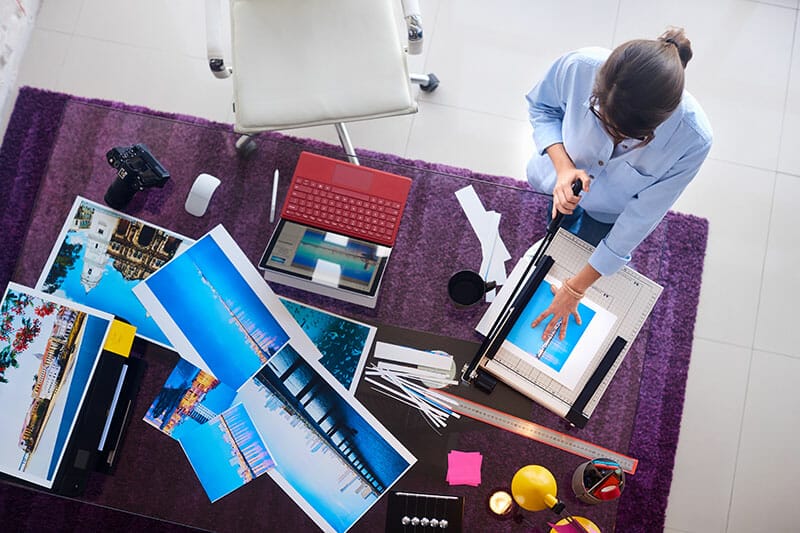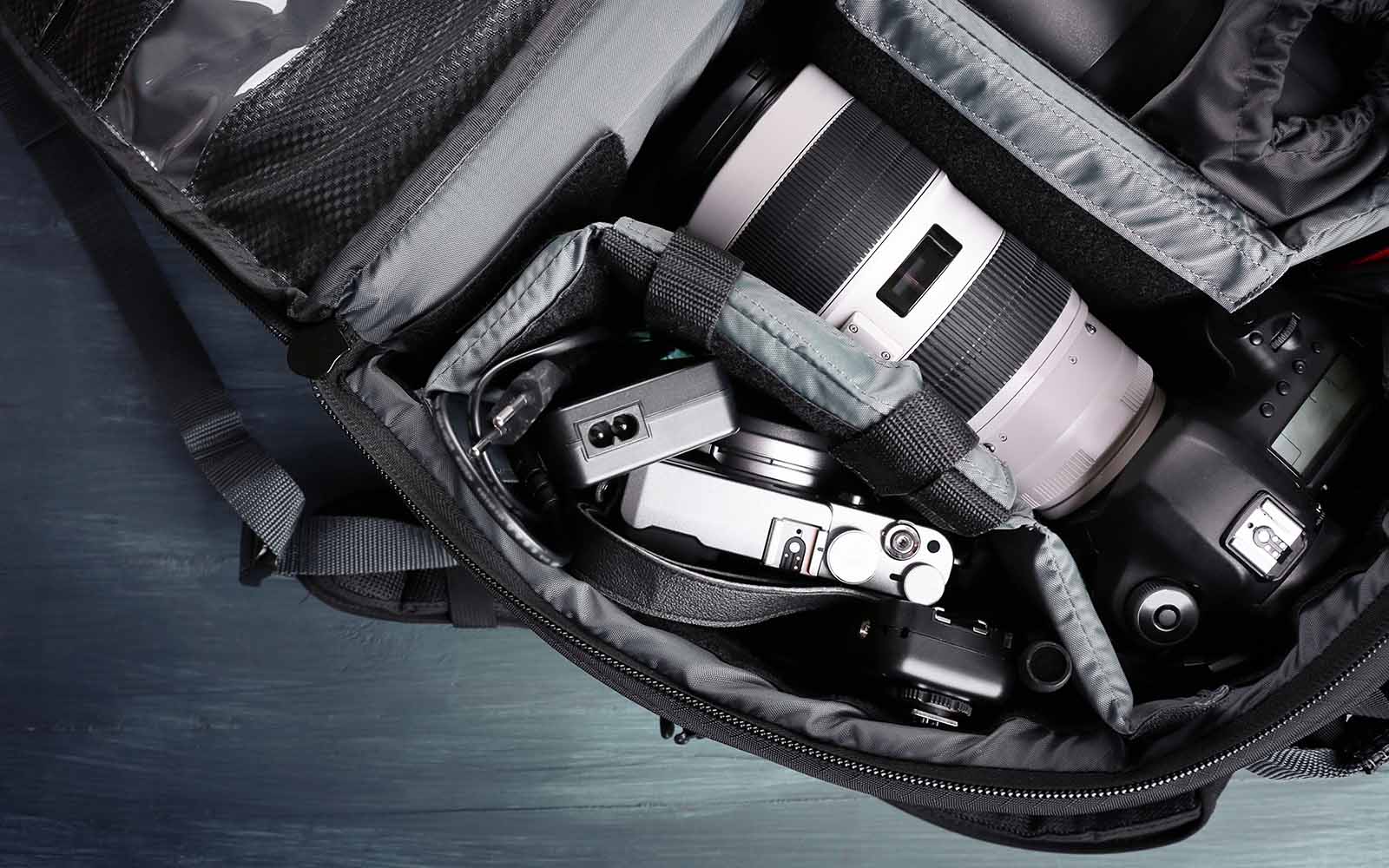Printing a picture has never just been a case of popping any spare scraps into your printer and hoping the technology works its magic. There are certain types of paper for printing photos which creates different looks suited for certain types of imagery.
If you haven’t already caught our previous article about which printers are best for photographers, then click here.

All paper is measured in weight using a unit referred to as GSM (grams per square metre). It’s not a case of the higher the GSM the better the paper – it’s simply relating to its thickness.
With that said, lightweight paper (70 GSM) may not hold colours as well as thicker paper. Choosing the correct weight is important for printing photos. Paper that is over 160 GSM is classified as card.
Ideally for photography we’d recommend choosing a paper weight between 150-250 GSM. This will help if you are intending to mount or frame the picture afterwards.
As a measure of paper density, higher GSM weight feels thicker when held hence you will often come across greeting card papers boasting GSM weight on the high end of the spectrum, while prints with low keepsake potential such as brochures that will likely be discarded quite quickly will feature more modest GSM weight.

When it comes to choosing the finish of the photo paper there are several choices. You may have heard of terms such as Lustre (or Luster in US), Glossy, Pearl, Matte, Cotton, Canvas, Metallic and Satin.
You’ll find professional printers offer Pearl and Lustre to recreate a type of satin finish, but with a textured feel. The normal satin finish is quite flat, but pearl and lustre give a more textural feel in the hand. This is a nice finish for high-end fine art prints.

Glossy is probably the most common types of paper finish for printing photos. You can choose different levels of gloss from standard to high gloss. The shiny finish which is caused by the coating helps show up details in the picture.
It’s important to consider though where the final print will be displayed. Because of the shiny look this can make it more susceptible to glares and distracting reflections if mounted on a wall. Glossy prints are better for candid snapshots kept in a photo album.
Whereas gloss had lots of shine, matt finished paper is completely flat. While matt paper is used a lot in printing brochures and flyers, as it’s a little cheaper to produce (due to the simpler production) you can still use it for printing photos.
Black and white images look great on matt paper. Since monochrome images are more about shapes, lines and emotion using a matt paper finish keeps the attention on the composition and off the shiny finish like gloss paper.

If you like the look of gloss but don’t want the issues of reflections then try satin paper, as it falls halfway between matt and gloss.
While there is still a level of shine, it’s not as visible. You may also hear satin being referred to as semi-gloss too.
Satin paper can look fantastic on portraits and action photos as they add a little extra shine and enrich colours but doesn’t look too processed.

Preparing your images for print correctly will make the rest of the process easier. Don’t expect the printer to know what you want if you don’t give it the right settings and feed it with the right paper.
Remember when choosing a type of paper for printing photos to not go for the cheapest – it won’t do justice to your final photo.
Discover the BEST way on how to clean a camera sensor using swaps, rocket blowers and pencil brushes to give your shots a dust-free finish!
Capture the magic of the night with our beginner’s guide to night photography. Learn tips and techniques for stunning results.
Master the art of solar eclipse photography with expert tips on equipment, settings, and precautions for stunning celestial images.
Learn the basics of photography – fast – with our FREE 60-Second Photographer online course. Each class is short and sharp with simple, actionable steps that give you immediate results.
x 30 lessons

© iPhotography™
Become a confident and competent photographer in less than 30 minutes!
Before you leave, make sure you’ve secured your FREE online photography course (worth £29.99)
Each class is just 60-seconds or less making it the fastest and easiest way to learn photography!